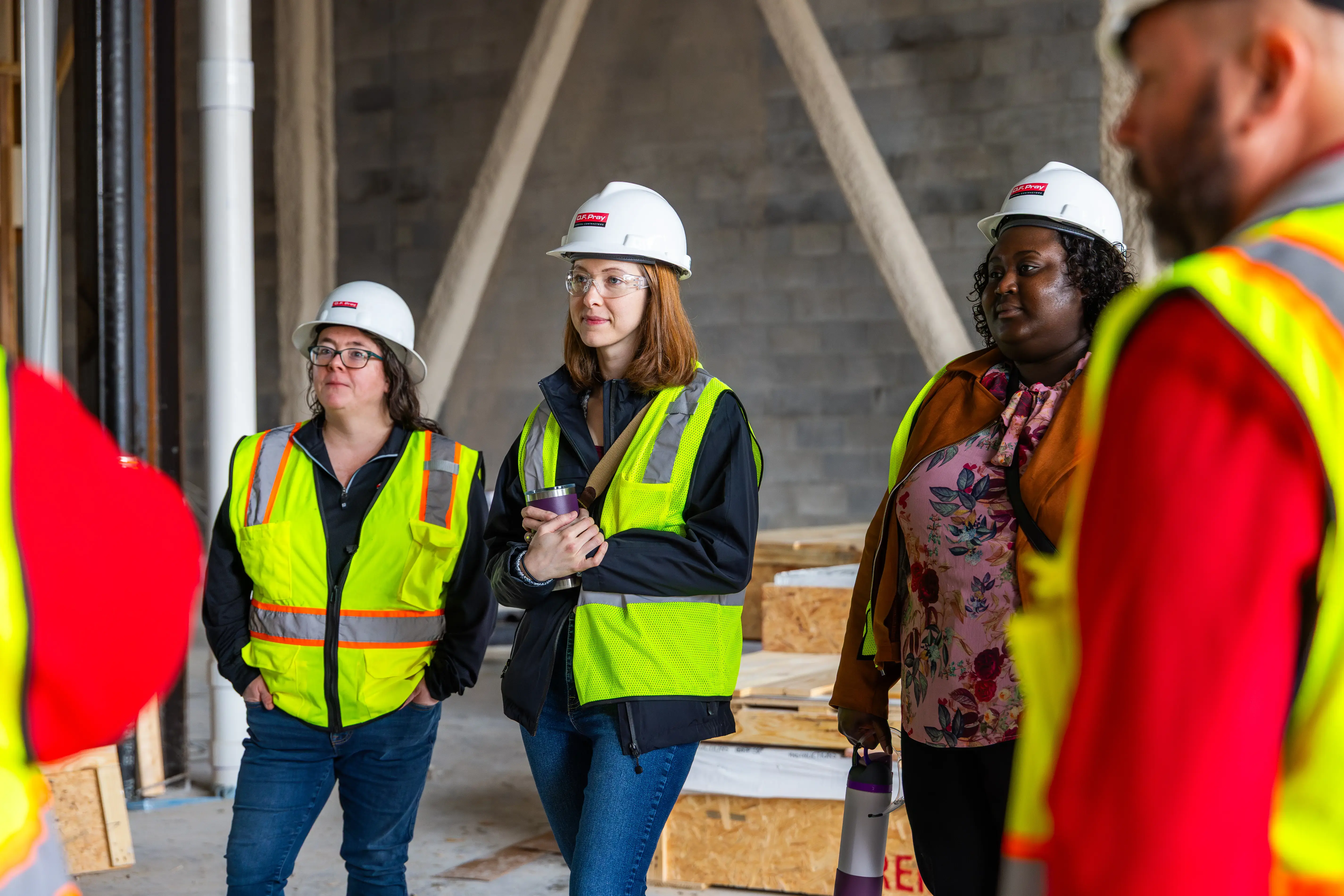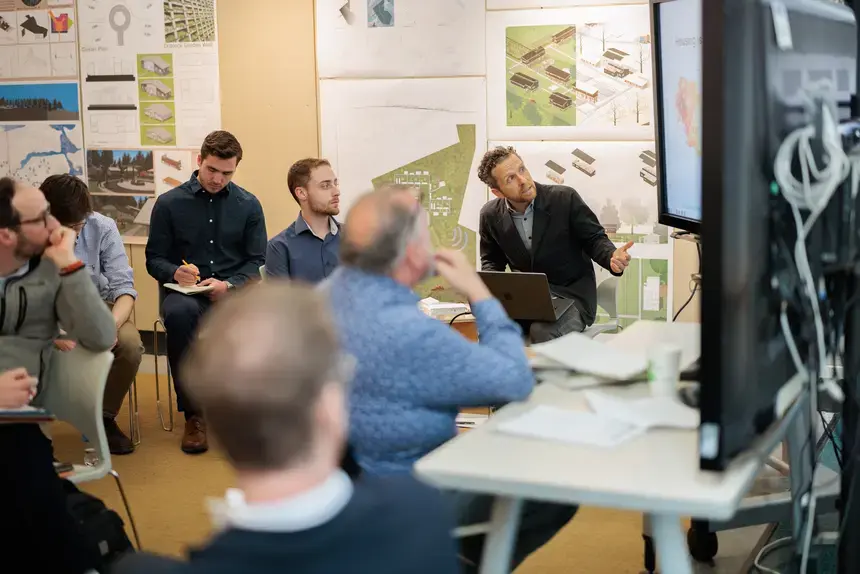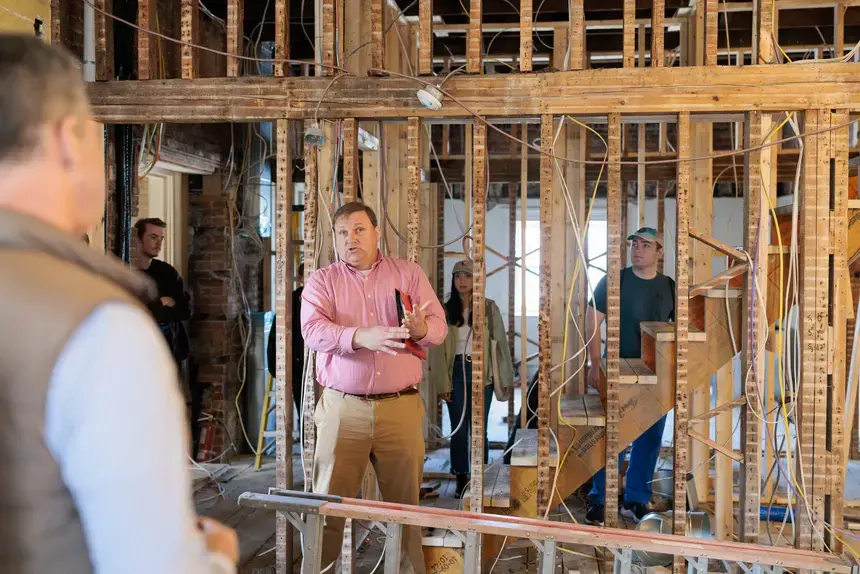About the Real Estate Graduate Program
QUICK LINKS
Master of Science in Real Estate Program Facts
Format
Low Residency with Asynchronous Online
Schedule
Spring, Summer and Fall Start terms;
Asynchronous online coursework plus two, 3-Day (in-person) residencies
Credits Required
Master's Degree: 30
Certificate: 15
Time Commitment
Master's Degree: 1 year full time, 2 years part-time
Certificate: 2 semesters
Cost
2026-2027 Academic Year
$1,176 per Credit
$2,437 Additional Fee for Studio Classes
Fees
2026-2027 Academic Year
$145 per semester (online students)
Ways to Save
Apply By
Fall: March 1 (priority), June 15 (regular), August 1 (final)
Spring: November 1 (priority), December 15 (regular), January 6 (final)
Summer: March 1 (regular), April 1 (final)
Upcoming Events
Master of Science in Real Estate Degree Requirements
The Real Estate Industry: A Growing Opportunity
The global real estate market was valued at $7.2 trillion in 2023 and is expected to reach $8.65 trillion by 2032 (Research and Markets, IMARC). This growing industry is driven by:
- Rapid urbanization
- Rising demand for high-quality housing and infrastructure
- Increased investments in technology and sustainable practices
In the U.S., commercial real estate alone generated $4.34 trillion in 2023 (Research and Markets).
Real Estate Industry Opportunities
With the real estate market exceeding $10.5 trillion globally and $16 trillion in the U.S., now is the time to position yourself for success. The industry is evolving, and skilled professionals are in high demand to:
- Navigate finance, investment, and sustainability
- Tackle the social implications of real estate development
- Lead with a broad understanding of real estate’s impact on society
Real Estate Education Aligned with Industry Growth
With employment in real estate management projected to grow 3% from 2022 to 2032, and urban and regional planning positions expected to grow by 4% over the same period (BLS), our programs equip you to meet these industry demands head-on.
These programs are part of the Cummings School of Architecture, which offers additional graduate programs in Architecture, Preservation Practices, and Urban and Regional Planning. The School is also home to the Cummings Institute for Real Estate.
RWU Master of Architecture and M.S. Preservation Practices students can earn the Real Estate Graduate Certificate as part of their degree with no additional cost or coursework.
Why Choose Roger Williams University?
At Roger Williams University, we prepare you to thrive in the fast-growing real estate industry. Our program prepares you for success across all sectors of the industry—including residential, commercial, industrial, retail, hospitality, and more.
Our master’s degree and graduate certificate programs offer a multidisciplinary education that will develop your expertise in:
- Project development and finance
- Design principles
- Urban and regional planning
- Historic preservation
- Project management and construction
- Regulatory affairs, law and social policies.
- Sustainability and environmental conditions
Application Requirements
Upcoming Events
The Office of Graduate Admission hosts Open Houses and Virtual Information Sessions throughout the year.
View our upcoming events for the most current opportunities to hear about the graduate programs in Real Estate.
Real Estate Symposium
RWU holds an annual Real Estate Symposium to showcase and address the complexity and interconnected challenges facing the real estate industry.




